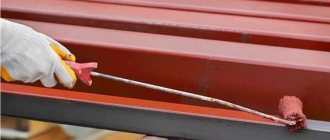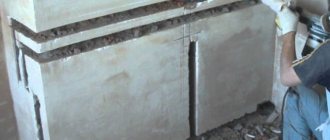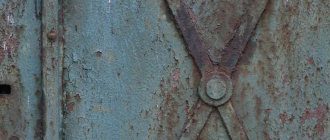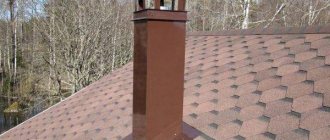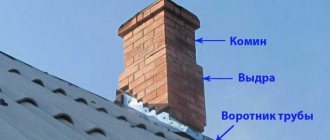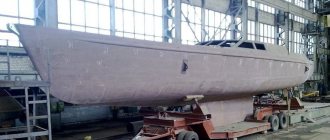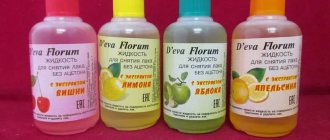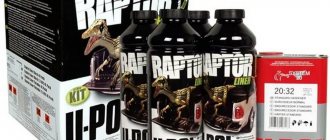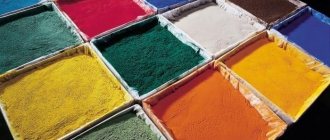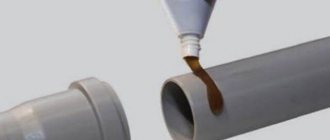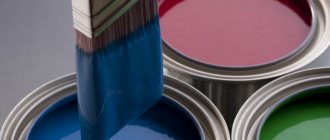Corrosion is a specific process in which solids break down over time. This can happen not only due to certain chemical reactions. Sometimes corrosion is the result of electrochemical processes. It often appears on the surface of a substance and indicates that its subsequent destruction has begun. Some chemical elements are capable of reacting with the environment, as a result of which corrosion can form on some surfaces, destroying even durable materials.
There is corrosion that occurs on various materials. However, the most common is metal corrosion. Due to this result of a chemical reaction, the economies of many countries suffer serious losses. The thing is that the most common type of corrosion is rust, which sometimes requires replacing the entire metal structure.
At the moment, pipes with anti-corrosion coating are becoming increasingly popular, making it possible to maintain the overall performance of the device of which they are part. Thanks to this development, most manufacturers of various goods breathed a sigh of relief. After all, now there is no need to dismantle and reinstall pipes that were damaged by metal corrosion after a few years.
Types of metal corrosion
There are two main types of corrosion, differing in the degree of damage that it can cause. A distinction is made between direct and indirect corrosion.
If corrosion has caused direct damage, in this case the metal coating cannot be restored. Therefore, you will have to change all equipment that consists of metal parts. If corrosion has already damaged the metal, it is best to provide anti-corrosion protection. It, in turn, costs a lot of money, but after treatment with special substances and chemical solutions, the renewed metal coating will no longer be subject to oxidation and destruction from corrosion.
For this reason it costs a lot of money. However, after treatment with special substances and chemical solutions, the renewed metal coating will no longer be subject to oxidation and destruction from corrosion.
If the damage was indirect, only some parts of the metal structure are replaced.
In this case, funds will be spent on:
- purchase of appropriate metal,
- reduction in equipment power if the metal structure consists of pipes and other similar equipment,
- improvement of products, the main element of which is a metal frame.
Corrosion protection is the main task of modern designers developing various metal parts. In order for a structure to last for several decades, it is necessary to create all the conditions to protect it from external factors and various atmospheric phenomena, and the ability to influence the structure of the metal.
Modern technologies make it possible to develop an anti-corrosion coating for steel pipes, which provides the metal structure with additional protection from chemical elements that often come into contact with its surface.
PAINTS FOR FERROUS AND NON-FERROUS METAL
PAINT FOR GALVANIZED METAL ROOF ANTI-CORRO-C
Anti-corrosion, weather-resistant, quick-drying matte paint for the protection of galvanized metal structures indoors and outdoors: roofs, gates, pipes, gutters, gutters, corrugated sheets, sheet metal. Bucket: 25 kg
Price per bucket: 4750 rub.
Anti-corrosion, quick-drying, all-season matte primer-enamel “3 in 1” with the addition of a rust-converting component. Bucket 25 kg
Price per bucket: 4750 rub.
Anti-corrosion, quick-drying matte primer-enamel “3 in 1” against rust for the protection of metal structures made of ferrous and galvanized metal. Bucket 25 kg
Price per bucket: 4875 rub.
Quick-drying (30 min.) impact-resistant matte primer-enamel for metal. Bucket 25 kg
Price per bucket: 5375 rub.
Epoxy ester quick-drying (30 min.) primer-enamel “3 in 1” to protect metal from corrosion. Bucket 20 kg
Price per bucket: 4600 rub.
Quick-drying anti-corrosion primer-enamel against rust based on zinc orthophosphate for barrier and decorative protection of metal. Can be applied to rusty surfaces (up to 150 microns). Forms an impact-resistant, water-resistant surface, reliably protects the metal from under-film corrosion, exposure to aggressive vapors, gases, and salt. It is applied to structures made of ferrous and galvanized metal at temperatures down to –10 degrees. Bucket: 20 kg
Price per bucket: 5000 rub.
Chemical-resistant, polyurethane, anti-corrosion paint to protect metal and other surfaces from the chemical effects of aggressive substances: salts, acids, oils, gasoline. Bucket 25 kg
Price per bucket: 8000 rub.
Pipes with protective coating
Since at the moment oil and gas are becoming increasingly popular as universal types of fuel, it is worth thinking about how to provide high-quality transportation for them.
Therefore, it is important to create pipes at enterprises that would be protected with a special anti-corrosion coating that prevents the destruction of pipe walls or the occurrence of corrosion on their surface, which leads to their destruction.
Projects are being created that would be designed to improve energy security in a particular country. We can say that in our time the world is experiencing an industry boom in pipeline transport. Thus, a situation has been created that allows for the construction of pipeline systems that could become an alternative to the existing ones.
Russia is a rapidly developing country that is trying to invent and develop new and advanced types of protective coatings. Surprisingly, our specialists have already created pipes containing polyethylene insulation.
It is important to be aware of the fact that the installation of such pipes can only be carried out efficiently by a professional who understands such issues.
It is no secret that technologies that provide solutions to such problems were invented several decades ago. If the pipe has a 3-layer polymer insulation consisting of several layers, then the insulation of the pipe joints should be similar. The only type of this type of insulation will be heat-shrinkable cuffs.
How to get rid of corrosion
In order for a metal structure to last longer, it is necessary to treat the coating with special substances to prevent the formation of corrosion on the surface of the material.
The most common are pipes with an internal anti-corrosion coating, because thanks to the protective layer, they last longer. Special chemicals, which will subsequently protect metal pipes, are applied to their inside. Moreover, if corrosion provokes rust on the outer surface of the pipe, preventing its spread will be more difficult. In this case, manufacturers try to worry about the safety of the entire surface of the pipe in advance.
Therefore, the cost of such equipment, consisting of several metal parts, will be significantly higher. Manufacturers indicate on the accompanying instructions for the product that special protective substances are applied to the metal.
If there is no such protection, the pipe can last for several years until external factors acting on its surface lead to partial or complete destruction of the metal.
In this case, it does not matter where the pipe is located indoors or outdoors. Even if it is part of communications and is located in sea water, its surface is exposed to various chemicals.
The following are especially in need of corrosion protection:
- various types of pipelines located not only in the open air, but also in water,
- equipment, the main part of which is metal,
- metal frames of various residential premises and industrial buildings,
- all kinds of tanks,
- construction cranes,
- bridges,
- heat exchangers.
There are also pipes with an external anti-corrosion coating, created specifically for subsequent installation in enterprises and industrial workshops, where most of the basic chemical reactions and processes that speed up the production of goods often occur.
External protection of pipes from corrosion is as important as internal protection. However, if the manufacturer does not have additional financial resources to purchase the appropriate equipment, you can save significant financial resources by purchasing this type of pipe. Russia is currently investing heavily in the development and subsequent production of special substances that protect pipes from rust and other signs of corrosion on their surface.
Some regions of Russia have a humid climate. This is an ideal place for not only rust to appear on the walls of metal coatings, but also as a result of corrosion, which completely destroys metal coatings of any thickness and shape. If we take into account all the above factors, at the moment corrosion is the main problem that does not allow our country to develop fully. When our specialists are able to establish the production of special substances designed for anti-corrosion protection of metal surfaces, the state will save significant financial resources, which are spent annually on the purchase of such chemical compounds abroad.
In addition, there is no need to replace pipes and other metal coatings over time, the service life of which expires due to rust and corrosion that destroys their surface.
The use of anti-corrosion protection products can significantly reduce material losses in most developed countries of the world.
At the same time, Russia needs to take its place among producers of such goods. This will allow our country to take a leading position not only in the production of necessary goods and chemical elements that prevent the destruction of metal surfaces. In this way, it will be possible to conclude a sense of mutually beneficial contracts that will allow Russia to cooperate with other states.
There are several ways to apply an anti-corrosion protective coating to a metal surface. The most common is the barrier method of processing metal surfaces. That is, the substance is applied directly to the coating surface itself. Even if it contains additional chemicals, the anti-corrosion protection will fulfill all the functional characteristics and properties assigned to it. For example, if a metal surface is painted with some kind of paint and varnish material or contains impurities of other substances and materials such as nylon, the substance will not enter into various chemical reactions with them, but will retain a strong structure.
Just as paint and varnish materials create a protective film on the surface of the material, anti-corrosion substances form an additional coating, which in turn is not washed off with water. Over time, even such anti-corrosion substances lose their properties. Therefore, over time it is necessary to repeat the processing procedure.
However, before choosing certain means to protect a metal surface, it is also necessary to take into account the characteristics of the metal itself. Even the conditions under which the process of applying a substance to metal occurs plays an important role for its further operation and performance.
Therefore, Russian manufacturers are seriously thinking about creating an effective, inexpensive product for protecting metal surfaces from damage and all sorts of consequences of corrosion.
Technologists have already achieved certain results by developing several universal compositions that interact with most metals. But they still need to be refined and further improved. Subsequently, these compositions and substances will provide complete protection to pipes and other metal structures.
What should the paint be like?
Do you know which open communications have the greatest length in our apartments? Of course, heating systems, and since heating pipes are a special type of surface, the painting composition must therefore meet certain requirements.
Captain Obvious informs: it is not recommended to use ordinary paint on batteries and supply pipes, since, most likely, it will not live up to expectations and will quickly become unusable.
So, what paint should you use to paint heating pipes? Among the requirements, the most important are the following:
- Lack of water permeability . It is important that the paint functions as an anti-corrosion coating. Even if heating pipes are located in a dry room, there is a risk of rust on black steel. Properly selected paint will avoid this;
- The aesthetic point is no less important , since the color of the paint should not only not disturb the external aesthetics of the room, but also complement it. In principle, if the pipes are located in niches that will be closed in the future, then only protective properties will be required from the paint.
However, you should not hide any communication pipes with any insulating materials, as this will make it difficult to access them in the event of a breakdown;
Pipeline paint can be any color.
- Since the surface of the battery is often subject to heat, one of the most important points among the paint requirements is its resistance to high temperatures . Otherwise, the coating may become yellow in the future, and cracks and delaminations may appear on the painted surface.
- It is preferable to choose paints with good adhesion to metal , otherwise you will have to treat the surface to be painted with a primer.
